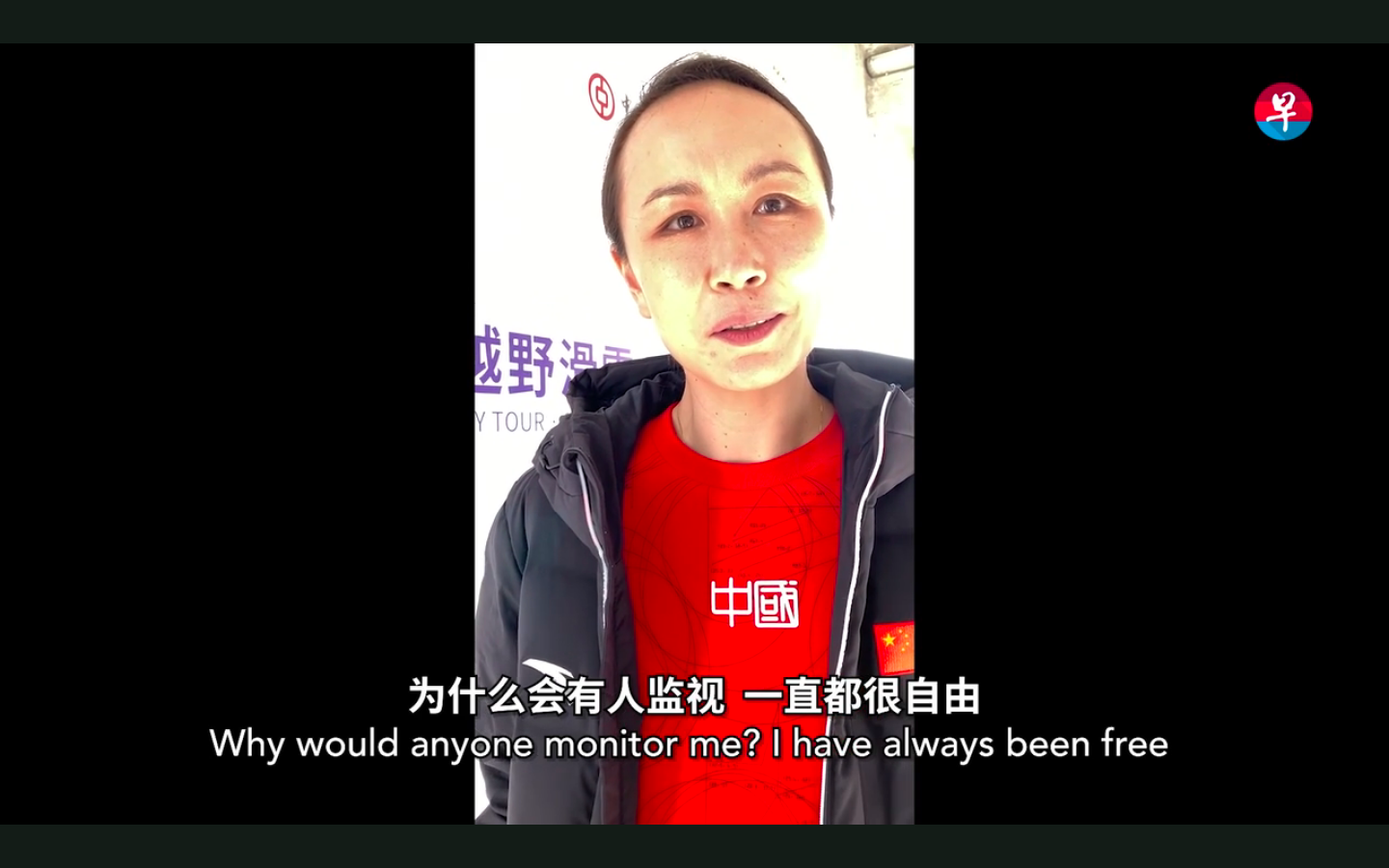Peng Shuai, the Chinese tennis player who in November went public about her relationship with a high-ranking state official, said in an interview posted Sunday that she did not make an accusation of sexual assault against him.
"I have never said or wrote about anyone sexually assaulting me," Peng said in a six-minute video posted by the Singapore-based Chinese-language publication Lianhe Zaobao, which approached Peng in Shanghai during a cross-country skiing event this past weekend, also attended by Yao Ming. "On the Weibo post, that's my personal issue. I know there are many misunderstandings, but there is no distorted interpretation," she continued.
In the original Weibo post, Peng wrote the following about an encounter with former vice premier Zhang Gaoli: "Back then you had no intention of taking responsibility for your actions, so why come back for me again, take me to your house, and force me to have sex with you?" She also wrote: "That first afternoon, I didn’t agree to it and I cried the whole time."
When asked by the reporter if she was free to leave her home in Beijing or if she was being monitored, Peng said, "Why would anyone monitor me? I have always been free." She also said that she had written the email in Chinese to Women's Tennis Association CEO Steve Simon, and that it was later translated to English. At the time, Simon said he had "a hard time believing that Peng Shuai actually wrote the email." On Dec. 1, the WTA said it was suspending its events in China for the 2022 season, out of concern for Peng's well-being and the safety of its players and staff. Simon has repeatedly called on China to investigate the accusations in Peng's Weibo post.
The WTA does not appear as though it will budge because of this video. “It was again good to see Peng Shuai in a public setting and we certainly hope she is doing well,” the association said in a statement Monday. “As we have consistently stated, these appearances do not alleviate or address the WTA’s significant concerns about her wellbeing and ability to communicate without censorship or coercion.”





